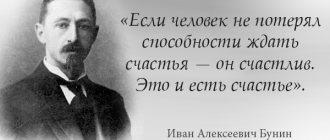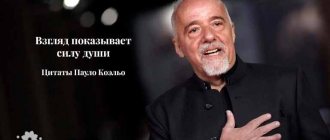About medicine
Thanks to Hippocrates, medicine began to be considered a separate science. If earlier it was thought that the gods send diseases, and they help cure them, then he believed that the causes were natural. The scientist did a lot to develop the art of healing as a science.
“Medicine is the noblest of all sciences.”
Doctors have always been respected in society, and only educated and worthy people could become doctors. This Hippocrates quote about medicine can be explained to mean that doctors are a special category of people. And healing is not a simple science that is based on only one theory. It is thanks to medicine that it becomes possible to help people. This makes it one of the important sciences.
About treatment
Hippocrates believed that the most important thing is to organize the right regimen for the patient, which will help him recover faster. To do this, it was necessary to carefully monitor his condition and create the correct diet.
“The doctor heals, nature heals.”
This quote from Hippocrates can be explained in such a way that although the doctor prescribes treatment, it is nature that gives a person the vitality he needs.
“Very often the best medicine is to do without it.”
This quote from Hippocrates says that sometimes a person himself invents a disease or exaggerates it. That is why such an effect appeared in medicine - placebo. Sometimes, in order for a person to be healthy, it is enough for him to simply get a good night's sleep, eat right and spend more time in the fresh air.
Hippocrates on health: quotes everyone needs to know
An ancient Greek doctor many centuries ago expressed thoughts and ideas that will definitely be useful to you.
Who among us does not know that all doctors, after completing their education, take the Hippocratic Oath? And only after that they go to treat patients. What made the ancient Greek doctor and philosopher so distinguished that his name remained in medicine for thousands of years?
Portrait of Hippocrates from the collection of the National Gallery of Marche (Italy, Urbino)
Photo by Heritage Images/Hulton Fine Art Collection/Getty Images
Let's start with the fact that Hippocrates laid the foundation for clinical medicine as such. All these ideas about the intervention of gods in human life just then began to give way to medicine as a science, according to which any disease has its own natural causes.
Now consider what else we are grateful to Hippocrates for. He introduced the concept of the integrity of the organism. He was the first to justify the need to collect anamnesis and hold consultations. He created a doctrine about temperaments and the dependence of human behavior on the relationship between the vital “juices” circulating in his body. Developed a theory about the stages of diseases. Introduced new methods of examining patients - palpation and auscultation (listening to sounds inside the human body to make a diagnosis).
He also argued that the best method of treatment is to create conditions so that the body can cope with the disease itself. Hence one of the most important principles of medicine: “Do no harm!”
The learned works of Hippocrates contain wise thoughts that everyone should at least read. And it’s better to take it on board for the sake of your own health. We have selected the most important sayings for you.
- Cheerful people recover faster and live longer.
- Movement is the storehouse of life.
- A healthy beggar is happier than a sick king.
- Our food substances must be a remedy, and our remedies must be a food substance.
- We don’t get a short life, we make it that way; We are not poor in life, but we use it wastefully. Life is long if you use it skillfully.
- Idleness and idleness entail depravity and ill health, on the contrary, the aspiration of the mind towards something brings with it vigor, eternally aimed at strengthening life.
- What medicines don't cure, iron cures. What iron does not heal, fire heals. What fire does not heal should be considered incurable.
- Some patients, despite the consciousness of doom, recover only because they are confident in the doctor’s skill.
- In any illness, not losing your presence of mind and maintaining a taste for food is a good sign; the opposite is bad.
- The effects of dietary supplements are long-lasting, while the effects of medications are transient.
- Neither satiety, nor hunger, nor anything else is good if you exceed the measure of nature.
- Sleep and insomnia, both of which manifest themselves beyond measure, are a bad sign.
- Unreasonable fatigue portends illness.
- If sleep alleviates suffering, the disease is not fatal.
- The opposite is cured by the opposite.
- Often the best medicine is to do without it.
- The doctor treats the disease, but nature heals.
Antique bas-relief: Hippocrates examining a patient
Photo by Hulton Archive/Getty Images
- Some diseases come only from lifestyle.
- If the patient maintains presence of mind and appetite, this is the best sign of a possible recovery.
- It is healthier to choose both drink and food of lower quality, but more pleasant, than better quality, but unpleasant.
- Those who are accustomed to carrying out ordinary labor, even people who are weak or old, endure these labors more easily than the strong and young, but without the habit.
A man becomes angry in two cases: when he is hungry and when he is humiliated, and a woman only in one case - when she does not have love.
- It is impossible to help someone who does not want to change their life.
- Gymnastics, physical exercise, and walking should become firmly established in the everyday life of everyone who wants to maintain efficiency, health, and a full and joyful life.
- Just as clothiers clean cloth, knocking out dust from it, so gymnastics cleanses the body.
- The human soul develops until death.
- If a seriously ill person does not feel suffering, he is mentally ill.
- Disease always occurs either from excess or from deficiency, that is, from imbalance.
- Healing is a matter of time, but sometimes it is also a matter of opportunity.
- When several doctors examine a patient, they should not express their opinions about the course of the patient’s illness, much less quarrel, refute each other’s opinions and ridicule their colleagues.
- As for illnesses, take into account the following rule: help, or at least do no harm.
- Life is short, the path of art is long, opportunity is fleeting, experience is deceptive, judgment is difficult. Therefore, not only the doctor himself must use everything that is necessary, but also the patient, those around him, and all external circumstances must contribute to the doctor.









